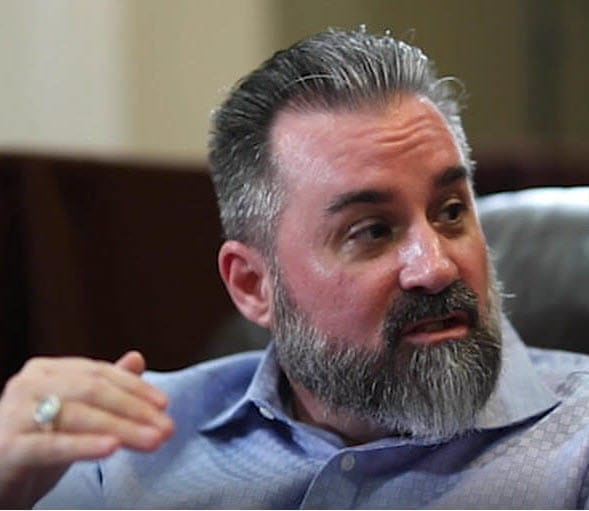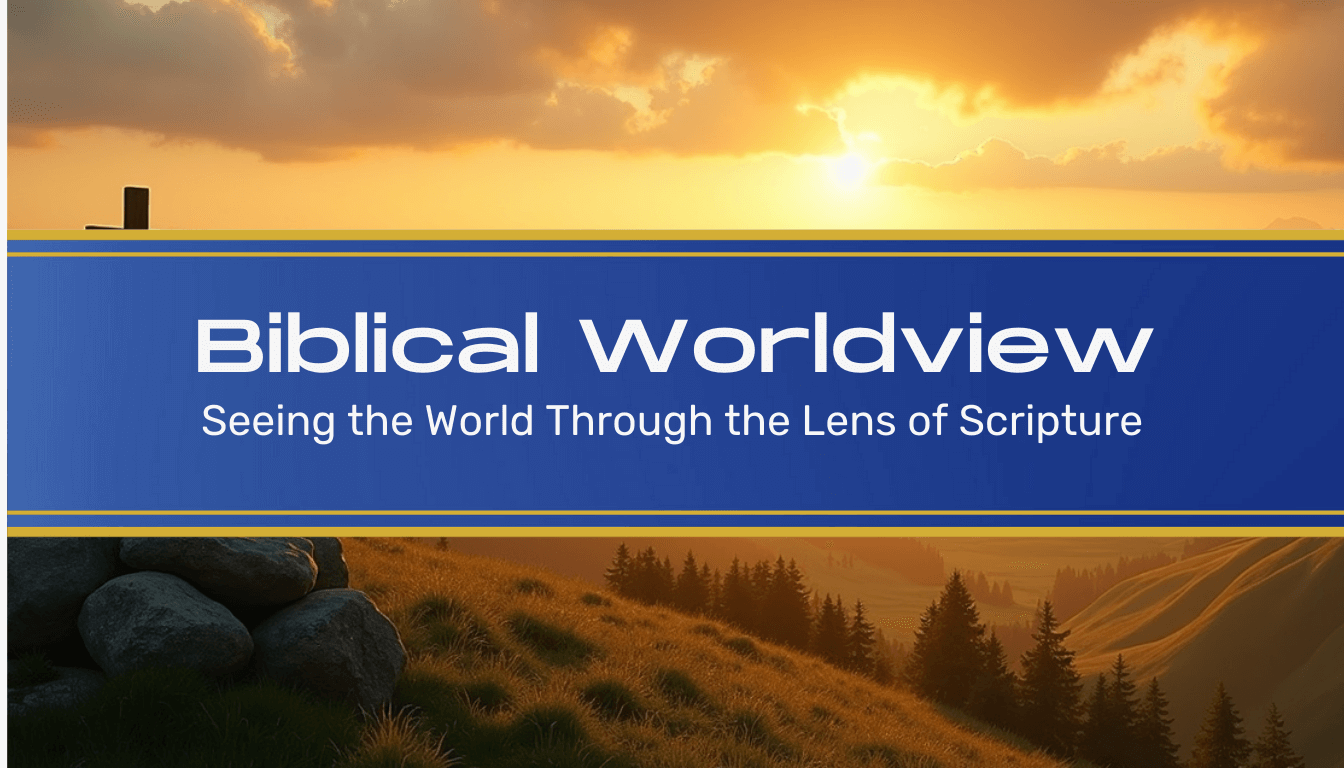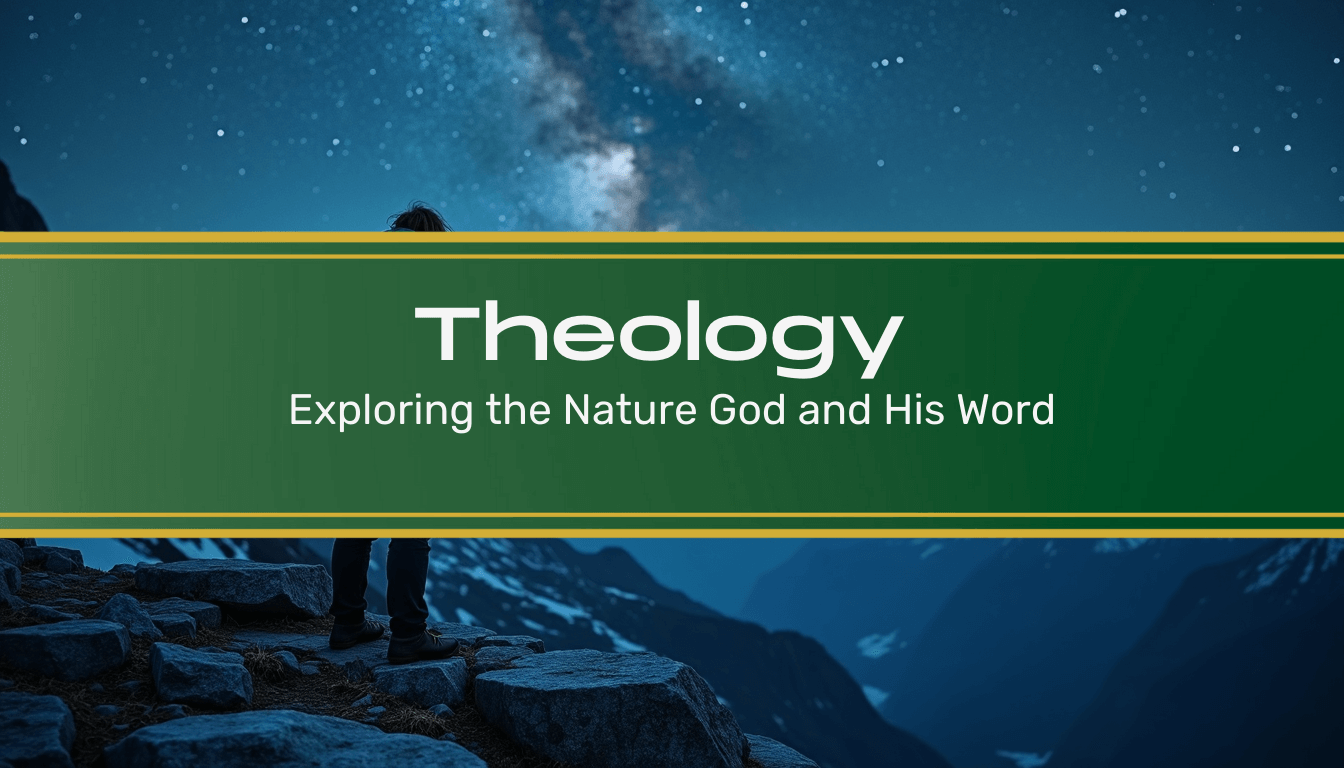
The Existence of God
Evidence That Demands a Verdict
When Atheism Becomes the New Fundamentalism
The question of the existence of God isn't just an abstract philosophical debate—it's the most consequential question you'll ever face. Your answer shapes everything: how you view yourself, how you treat others, what you consider meaningful, and what you do with the guilt that keeps you awake at 3 AM.
Yet in our increasingly secular culture, believing in God is often treated as intellectual suicide. We're told that science has made God obsolete, that faith is for the weak-minded, and that intelligent people have moved beyond such primitive superstitions. The new atheists—Dawkins, Hitchens, Harris—have convinced a generation that belief in God is not just wrong, but dangerous.
But here's what they don't want you to know: the evidence for God's existence is stronger today than it's ever been. Modern science, rather than disproving God, has provided compelling evidence for a Creator. Philosophy has refined arguments that point unmistakably toward a divine mind behind the universe. And the lived experience of billions of people throughout history testifies to a reality beyond the material world.
The real question isn't whether there's evidence for God—there is. The question is whether you're willing to follow that evidence wherever it leads, even if it challenges your assumptions about autonomy, morality, and meaning.
Why This Question Matters More Than Your Next Breath
Some people treat the question of God's existence like a hobby—interesting to think about, but ultimately irrelevant to daily life. That's like treating the question of whether you're standing on solid ground or quicksand as a matter of casual curiosity.
It Determines Your Ultimate Reality
If God exists, then you're not the product of blind chance operating on matter over time. You're a created being with inherent dignity, purpose, and moral responsibility. Your life has meaning that transcends your temporary existence on this planet.
If God doesn't exist, then you're a cosmic accident—a collection of atoms that happened to arrange themselves in a way that produces the illusion of consciousness. Your thoughts, feelings, and moral intuitions are just chemical reactions with no ultimate significance.
It Shapes Your Moral Framework
The existence of God provides an objective foundation for morality. Without God, moral statements become expressions of personal preference or cultural conditioning. "Murder is wrong" carries no more objective weight than "chocolate is better than vanilla."
With God, moral statements reflect the character of a holy, just, and loving Creator. They're not arbitrary rules imposed by a cosmic tyrant, but expressions of the way reality is structured.
It Affects Your Response to Suffering
If God exists, then suffering—while still painful and often mysterious—can have meaning and purpose. It can be redemptive, instructive, or part of a larger plan that we can't fully comprehend from our limited perspective.
If God doesn't exist, then suffering is just meaningless pain inflicted by an indifferent universe. There's no hope for ultimate justice, no possibility of redemption, and no reason to believe that things will ever be made right.
Sharp Edge: The same people who mock Christians for believing in God without "evidence" will spend their entire lives believing that consciousness emerged from unconsciousness, that life came from non-life, and that the universe created itself from nothing. But sure, we're the ones with faith problems.
The Cosmological Argument: Why Something Can't Come from Nothing
The cosmological argument is one of the most intuitive and powerful arguments for God's existence. It's based on a simple principle that even children understand: things don't just pop into existence for no reason.
The Kalam Cosmological Argument
The most refined version of this argument, developed by medieval Islamic philosophers and refined by modern thinkers like William Lane Craig, goes like this:
Everything that begins to exist has a cause
The universe began to exist
Therefore, the universe has a cause
Let's examine each premise:
Everything That Begins to Exist Has a Cause
This isn't just philosophical speculation—it's based on universal human experience and scientific observation. We've never observed anything coming into existence without a cause. Not once. Ever.
When atheists object to this premise, they usually point to quantum mechanics and claim that particles can pop into existence from nothing. But this misunderstands what quantum mechanics actually says. Virtual particles don't come from "nothing"—they emerge from quantum fields, which are definitely something. And they don't violate causation—they follow precise mathematical laws.
The Universe Began to Exist
This is where modern science becomes the Christian's best friend. The Big Bang theory—initially resisted by many scientists because of its theological implications—demonstrates that the universe had a beginning. Before the Big Bang, there was no time, no space, no matter, no energy. There was literally nothing.
The evidence for this is overwhelming:
The expansion of the universe (Hubble's observations)
The cosmic microwave background radiation
The abundance of light elements
The second law of thermodynamics
Even atheist cosmologists like Stephen Hawking acknowledge that the universe began to exist. They just don't like the implications.
Therefore, the Universe Has a Cause
If the universe began to exist, and everything that begins to exist has a cause, then the universe must have a cause. But what kind of cause could create the universe?
This cause must be:
Timeless (since time began with the universe)
Spaceless (since space began with the universe)
Immaterial (since matter began with the universe)
Incredibly powerful (to create the universe from nothing)
Personal (since the only things we know that are timeless and immaterial are minds)
These attributes perfectly describe the God of classical theism.
Addressing Atheist Objections
"If everything needs a cause, what caused God?"
This objection misunderstands the argument. We're not saying everything needs a cause—we're saying everything that begins to exist needs a cause. God, by definition, is eternal and didn't begin to exist.
"Maybe the universe is eternal"
The scientific evidence clearly shows that the universe began to exist. Even if you propose multiverse theories or cyclical models, you still need an ultimate beginning point.
"Maybe the universe caused itself"
This is logically incoherent. For something to cause itself, it would have to exist before it existed—which is impossible.
Sharp Edge: Atheists will believe in infinite multiverses, self-creating universes, and consciousness emerging from unconsciousness before they'll consider the possibility that maybe, just maybe, the universe was created by an intelligent mind. It's like watching someone explain away a painting by insisting that paint randomly splattered itself into the Mona Lisa.
The Teleological Argument: The Universe's Fingerprints
The teleological argument, also known as the argument from design, has been around for centuries. But modern science has provided evidence for design that would have blown the minds of previous generations.
Fine-Tuning: The Universe's Goldilocks Problem
The universe appears to be fine-tuned for life with a precision that defies comprehension. If any of the fundamental constants of physics were even slightly different, life would be impossible.
Consider just a few examples:
The Cosmological Constant: This determines the rate of the universe's expansion. If it were larger by one part in 10^120, the universe would expand too rapidly for stars and galaxies to form. If it were smaller by the same amount, the universe would collapse before life could develop.
To put this in perspective: if you covered the entire North American continent with dimes stacked to the height of the moon, and then did the same thing a billion times over, and then blindfolded someone and asked them to pick out one specific dime—that's the level of precision we're talking about.
The Strong Nuclear Force: This holds atomic nuclei together. If it were 2% stronger, no hydrogen would exist (it would all be converted to helium). If it were 5% weaker, no elements heavier than hydrogen could form. Either way, no life.
The Ratio of Electrons to Protons: This must be balanced to an accuracy of one part in 10^37. If it were off by even this tiny amount, electromagnetic forces would dominate gravity, preventing the formation of galaxies, stars, and planets.
There are dozens of these constants, and they all must fall within incredibly narrow ranges for life to be possible. The odds of this happening by chance are so small that they're effectively zero.
Biological Complexity: The Information Problem
The fine-tuning isn't limited to physics—it extends to biology as well. The information content in DNA is staggering. A single human cell contains about 3 billion base pairs of DNA, which is equivalent to about 750 megabytes of information.
But it's not just the quantity of information—it's the quality. DNA contains functional, meaningful information that directs the construction and operation of living organisms. This is exactly the kind of information that, in our universal experience, comes only from intelligent minds.
Irreducible Complexity
Some biological systems are irreducibly complex—they require all their parts to be present and functioning for the system to work at all. The bacterial flagellum is a classic example: it's essentially a molecular motor with dozens of protein parts that must all be present for it to function.
Evolutionary biologists claim that such systems can evolve gradually, but they've never demonstrated how this could actually happen. They just assume it must be possible because the alternative—design—is unthinkable to them.
The Moral Argument: The Reality of Right and Wrong
Perhaps the most personally compelling argument for God's existence is the moral argument. It's based on the reality of objective moral values and duties—the fact that some things really are right or wrong, regardless of what anyone thinks about them.
The Structure of the Moral Argument
If God does not exist, objective moral values and duties do not exist
Objective moral values and duties do exist
Therefore, God exists
Objective Moral Values Exist
Despite what moral relativists claim, we all know that some things are objectively right or wrong. Torturing innocent children for fun is wrong—not just in our culture, not just in our opinion, but really, truly, objectively wrong.
We see this in several ways:
Universal Moral Intuitions: Across all cultures and throughout history, certain moral principles appear consistently: prohibitions against unprovoked killing, requirements to care for children, concepts of fairness and justice.
Moral Progress: We can meaningfully speak of moral progress—the abolition of slavery, the expansion of human rights, the recognition of human dignity. But progress only makes sense if there's an objective standard we're progressing toward.
Moral Outrage: When we see injustice, we don't just feel sad—we feel outraged. This suggests we believe the perpetrators are violating an objective standard, not just our personal preferences.
Moral Values Require God
Without God, there's no foundation for objective moral values. If we're just evolved animals, then our moral intuitions are just evolutionary programming designed to help our genes survive. They have no more objective validity than our preference for sweet foods or our fear of heights.
Some atheists argue that moral values can be grounded in human flourishing or social contracts. But this just pushes the question back a level: why should human flourishing matter? Why should we keep our contracts? Without God, these become arbitrary preferences with no objective foundation.
The Experiential Argument: The God-Shaped Hole
While philosophical arguments are important, many people find the experiential argument most compelling. This isn't about feelings or subjective experiences—it's about the universal human phenomena that point toward God.
The Universal Religious Impulse
Throughout history, in every culture, humans have been religious. This isn't just cultural conditioning—even in officially atheistic societies, religious belief persists. This suggests that the religious impulse is built into human nature.
The Longing for Transcendence
Humans uniquely long for meaning, purpose, and transcendence. We're the only species that asks "Why?" about our existence. We create art, music, and literature that points beyond the material world. We sacrifice for abstract ideals like justice, truth, and beauty.
If we're just evolved animals, why do we have these longings? Why aren't we satisfied with food, shelter, and reproduction like other animals?
Answered Prayer and Religious Experience
Billions of people throughout history have reported experiences of the divine—answered prayers, mystical experiences, encounters with God. While individual experiences can be questioned, the sheer volume and consistency of these reports across cultures and centuries suggests something real.
Sharp Edge: Atheists dismiss religious experience as wishful thinking, but they'll accept the testimony of a single scientist about a laboratory experiment they've never witnessed. Apparently, the scientific method only applies to things that don't threaten their worldview.
The Problem of Evil: Atheism's Achilles' Heel
Atheists often point to the existence of evil and suffering as evidence against God. But this argument actually backfires—it assumes that evil is real, which requires an objective moral standard, which requires God.
The Logical Problem of Evil
The logical problem of evil claims that the existence of evil is logically incompatible with an all-good, all-powerful God. But this argument has been thoroughly refuted by philosophers like Alvin Plantinga.
The key insight is that God might have morally sufficient reasons for permitting evil—reasons that we, with our limited perspective, can't fully understand. Free will, soul-making, and the greater good are all possible reasons why a good God might permit evil.
The Evidential Problem of Evil
The evidential problem of evil admits that evil might be compatible with God's existence, but argues that the amount and intensity of evil in the world makes God's existence unlikely.
But this argument assumes we're in a position to judge what an all-knowing God should or shouldn't permit. It's like an ant trying to understand human behavior—the cognitive gap is simply too large.
Evil as Evidence for God
Ironically, the existence of evil actually provides evidence for God. Our moral outrage at evil assumes that evil is objectively real—not just a matter of opinion or cultural conditioning. But objective evil requires an objective moral standard, which requires God.
Without God, "evil" is just a word we use to describe things we don't like. With God, evil is a real violation of the way things ought to be.
The Resurrection: History's Hinge Point
While natural theology provides strong evidence for God's existence, the resurrection of Jesus provides specific evidence for the Christian God. And the historical evidence for the resurrection is remarkably strong.
The Historical Facts
Even skeptical historians accept certain facts about Jesus:
He was crucified under Pontius Pilate
He was buried in a tomb
The tomb was found empty three days later
His disciples claimed to have seen him alive after his death
These claims transformed them from cowards into bold proclaimers
The Best Explanation
Various theories have been proposed to explain these facts without invoking the supernatural:
The disciples stole the body
Jesus didn't really die
The women went to the wrong tomb
The disciples hallucinated
But none of these theories adequately explain all the evidence. The resurrection, while admittedly miraculous, provides the best explanation for the historical facts.
The Transformation of the Disciples
Perhaps most compelling is the transformation of Jesus' disciples. These men went from hiding in fear to boldly proclaiming the resurrection, even unto death. People don't die for what they know is a lie.
Contemporary Challenges to Belief
Modern atheism presents several challenges to belief in God. Let's address the most common ones:
The Challenge of Science
Many people believe that science has made God unnecessary. But this is based on a fundamental misunderstanding of what science can and cannot do.
Science is excellent at describing how things work, but it can't answer questions about why things exist or what they mean. Science can tell us how the universe began, but it can't tell us why there's something rather than nothing.
Moreover, many of the founders of modern science—Newton, Kepler, Galileo—were devout believers who saw their scientific work as thinking God's thoughts after him.
The Challenge of Suffering
We've already addressed this, but it's worth emphasizing: the existence of suffering doesn't disprove God. It might make us question God's goodness or power, but it doesn't eliminate the evidence for his existence.
The Challenge of Religious Diversity
Some argue that the existence of multiple religions undermines the truth claims of any particular religion. But this is like arguing that the existence of counterfeit money proves that real money doesn't exist.
The fact that people disagree about God doesn't mean there's no truth about God—it just means we need to examine the evidence carefully to determine which claims are true.
Living with the Evidence
The evidence for God's existence is strong, but it's not coercive. God has provided enough evidence for those who genuinely seek him, but not so much that belief becomes unavoidable. Faith requires a step beyond the evidence—not a leap into irrationality, but a step of trust based on good reasons.
The Cost of Belief
Believing in God isn't just an intellectual exercise—it has practical implications. If God exists, then you're accountable to him. Your life isn't your own. Your choices have eternal consequences.
This is why many people resist the evidence for God. It's not that the evidence is insufficient—it's that the implications are uncomfortable.
The Cost of Unbelief
But unbelief has costs too. If you're wrong about God's existence, you've missed the point of your existence. You've lived as if you're an accident when you're actually a beloved creation. You've sought meaning in temporary things when eternal meaning was available.
Sharp Edge: The same people who demand absolute proof for God's existence will make major life decisions based on weather forecasts that are wrong 30% of the time. Apparently, the standard of evidence required is inversely proportional to how much the conclusion might inconvenience your lifestyle.
We don’t sidestep hard topics. We face them with Scripture, honesty, and respect. Start by exploring our category pages—they’re practical and built to help you think biblically. If what you find is useful, take your time and drill down into the articles within each category. If you do, you’ll learn a lot—and you’ll be better equipped to live like Christ.
The Reliability of the Bible
Why the Bible can be trusted as historically accurate and divinely inspired.
Jesus and the Resurrection
The historical evidence for Christianity's central claim.
Intelligent Design
How modern science points to a Designer behind the universe.
Evolution vs. Creation
Examining the evidence for different views on origins.
The Problem with Evil
Why suffering doesn't disprove God's existence.
Put This Into Practice
Choose one argument from this article and research it further using both Christian and secular sources.
Memorize one key verse about God's existence (e.g., Romans 1:20) and reflect on it daily this week.
Have a respectful conversation with someone who disagrees with you about God's existence, focusing on listening and understanding their perspective.
Conclusion
The question of God's existence isn't going away. It's too fundamental, too consequential, and too personal to ignore. The evidence points strongly toward a Creator—a being who is timeless, spaceless, immaterial, incredibly powerful, and personal.
This isn't the God of the philosophers—a distant, impersonal force. This is the God who created you, who knows you, and who loves you enough to reveal himself to you. The same God who fine-tuned the universe for life also became flesh and dwelt among us.
The evidence is there. The question is: what will you do with it? Will you follow it wherever it leads, even if it challenges your assumptions about autonomy and independence? Or will you resist it because the implications are too uncomfortable?

Chris Daniel, just a servant of Christ calling others to be ready. Like the Bereans, I try to examine Scripture daily to see if what I hear is true. If you're struggling to live as we're called, you're still in the fight. Don't give up.
Category 2 - Christian Apologetics

Category 3 - Bible Study

Category 4 - Theology


"Most middle-class Americans tend to worship their work, work at their play, and play at their worship. As a result, their meanings and values are distorted. Their relationships disintegrate faster than they can keep them in repair. Their lifestyles resembles a cast of characters in search of a plot." - Gordon Dahl
"The Bible is a reliable collection of historical documents written down by eyewitnesses during the lifetime of other eyewitnesses that report supernatural events that took place in fulfillment of specific prophecies and claimed their writings were divine rather than human in origin."
- Dr. Voddie Baucham on 2 Peter 1





